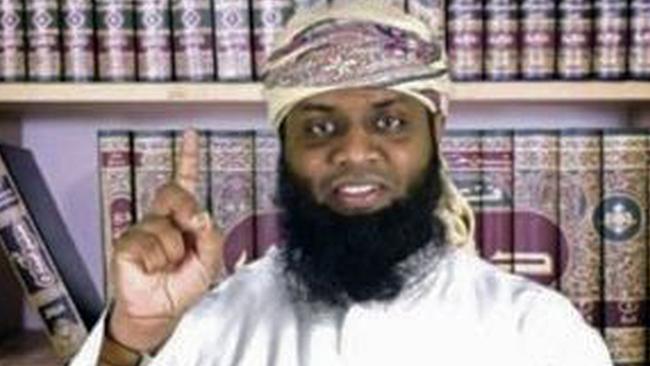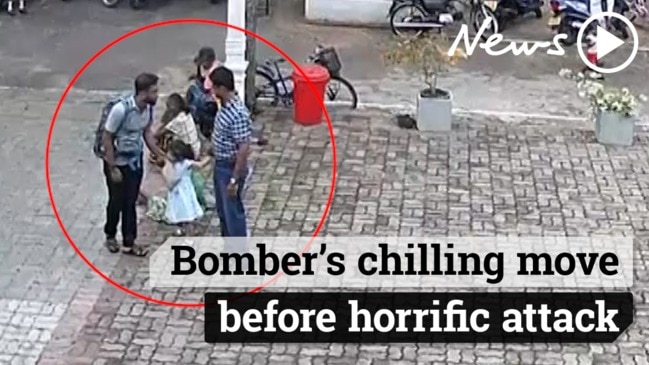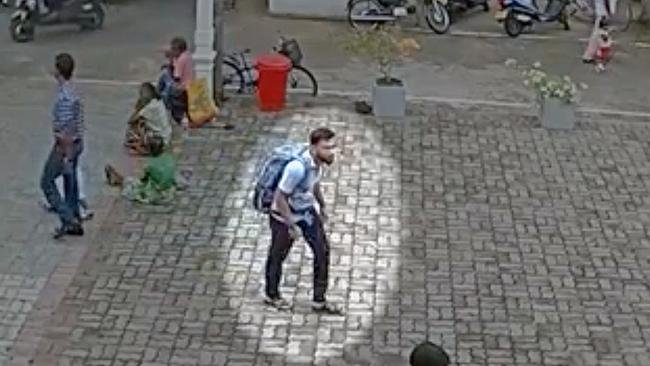Sri Lanka terror: Spice mogul held over sons’ suicide blasts
Members of one of Colombo’s wealthiest families are suspects in the Sri Lanka attacks.

A prominent Colombo spice trader was understood to be in police custody last night over the suspected involvement of his young adult sons in co-ordinated Easter Sunday attacks on churches and hotels that have now claimed the lives of at least 321 people.
At least 45 of those killed were children and others were “fighting for their lives in intensive care units”, Unicef said.
More than 48 hours after the attacks, Islamic State claimed responsibility last night on its Amaq website. But there was no word from the little-known radical Sri Lankan group, National Thowheeth Jama’ath, which authorities believe carried out the bombings
Leaders of Sri Lanka’s Muslim community told The Australian the wealthy, elderly exporter — named by local media as Alhaj Mohommed Yusuf Ibrahim — was arrested at his home in the Colombo suburb of Dematagoda. Three police officers were killed in a blast at the home on Sunday as they attempted to arrest suspects linked to the country’s worst terror attacks in more than a decade. The blast also killed a 25-year-old woman and her two children, theSri Lanka Mirror reports.
Police say the man’s sons, 33-year-old Imsath Ahmed Ibrahim and 31-year-old Ilham Ahmed Ibrahim, played a key role in the attacks. At least one of his sons is suspected to be among the nine or 10 suicide bombers involved in the attacks.
“He is one of the main businessmen in Colombo,” Muslim Council of Sri Lanka president NM Ameen said yesterday of the trader, adding there was no indication he knew or had any involvement in the attacks.
The revelation comes as Islamic State claimed responsibility for the attack and video emerged of one of the suicide bombers patting the head of a young child at St Sebastian church in Negombo before blowing himself up in the middle of worshippers.

According to the FirstPost website, police are questioning Mr Ibrahim and a third son, 30 year old Ijas Ahmed Ibrahim over what they know about the siblings’ terror links.
The website also claims that Ismail Ahmed Ibrahim, the family’s youngest son who is on the run, trained at a remote terror camp and was involved in attacks last year to destroy Buddhist shrines, and in the asssassination of secretary to the highways minister, a critic of Islamists.
The brothers were reportedly at the centre of Islamist groups that sent at least 36 people to fight with Islamic State in Syria.
Police late on Monday also raided a copper factory outside Colombo, suspected to be owned by one of the terrorists involved in the strikes.
The alleged involvement of wealthy, educated young Muslim men in Sunday’s attacks mirrors the profile of those involved in recent terror strikes in the region, including the 2016 Holey Artisan Bakery attack in Bangladesh in which five university-educated men stormed a Dhaka cafe and killed more than 20 people.
Junior defence minister Ruwan Wijewardene told parliament last night the NTJ was believed to have launched the attacks in conjunction with a group called JMI, which authorities later identified as another local extremist outfit Jammiyathul Millathu Ibrahim.
President Maithripala Siresena has appealed to the international community to help track down the foreign terrorists involved.
Police yesterday were understood to be interrogating a Syrian national following information from local suspects.

Muslim Council vice-president Hilmy Ahamed said community leaders had alerted authorities three years ago about hate speeches posted online by NTJ organiser Mohammed Cassim Mohamed Zaharan alias Zaharan Hashmi, which included exhortations to kill non-Muslims. The NTJ was the subject of an alert 10 days before the attacks from Indian intelligence services warning the group was plotting terror strikes on hotels and specifically naming Zaharan and his brother Rilwan.
The Hindu newspaper reported yesterday that India’s National Investigation Agency had intelligence as far back as six months ago about Sunday’s serial blasts from interrogation of an Islamic State sympathiser in Tamil Nadu. There were unconfirmed reports last night that Zaharan was one of two suicide bombers who detonated their explosives inside Colombo’s Shangri-La hotel as guests were lining up for the buffet breakfast at about 9am.
In one online sermon seen by The Australian, the Sri Lankan tells followers that only non-Muslims who agree to pay a religious tax should be allowed to live, and that those who have “not made a pact with Muslims should be killed”.
Mr Ahamed said Muslim leaders went back to the police less than five months ago after a group of young men “from decent families” were arrested for defacing Buddhist statues and a cache of explosives and detonators were found in a coconut grove north of Colombo. Oil Minister Kabir Hashim said one of the bombers had been arrested but released.
“We knew Zaharan was the provoker and we told authorities very clearly this was the man behind it, and he should be arrested,” Mr Ahamed said. “(Police) said they had been trying to track him since we first reported him but they couldn’t locate him because he didn’t use a mobile phone.”
But Zaharan was wrongly assumed to be a “loner who had absolutely no support from within the country’s Muslim community”, which represents less than 10 per cent of Sri Lanka’s 21 million people.



